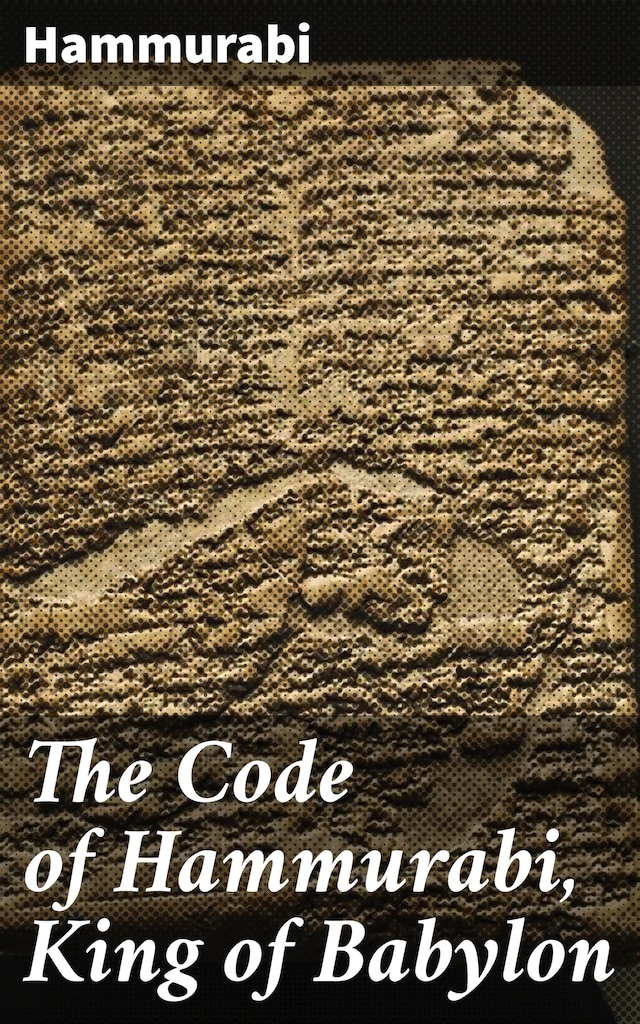
The Code of Hammurabi, King of Babylon
Insights into Ancient Babylonian Legal System and Justice
Om bogen
The Code of Hammurabi, King of Babylon is a significant ancient Mesopotamian legal text that dates back to around 1754 BC. Hammurabi's Code is one of the earliest and most complete written legal codes in history, consisting of 282 laws that cover a wide range of topics including family laws, criminal laws, and civil laws. The writing style of the code is concise and straightforward, reflecting the practical and straightforward nature of ancient Babylonian society. The laws are outlined in a deterministic fashion, with specific punishments prescribed for specific crimes, reflecting the strict sense of justice and order in Babylonian society. The Code of Hammurabi provides valuable insights into the legal system and social structure of ancient Mesopotamia, making it an essential read for anyone interested in ancient history and law. Hammurabi, the author of The Code of Hammurabi, was the sixth king of the First Babylonian Dynasty, ruling from 1792 BC to 1750 BC. As a ruler, Hammurabi sought to establish a fair and just legal system to govern his people, leading him to compile his famous code of laws. His code reflects his commitment to maintaining social order and justice in Babylonian society. Hammurabi's innovative approach to law and governance has had a lasting impact on legal systems throughout history, making him a foundational figure in the history of jurisprudence. I highly recommend The Code of Hammurabi, King of Babylon to readers who are interested in ancient history, law, and the development of legal systems. This landmark text provides invaluable insights into the legal and social norms of ancient Mesopotamia, showcasing the timeless quest for justice and order in human societies.
 Hammurabi
Hammurabi 37 Sider
37 Sider